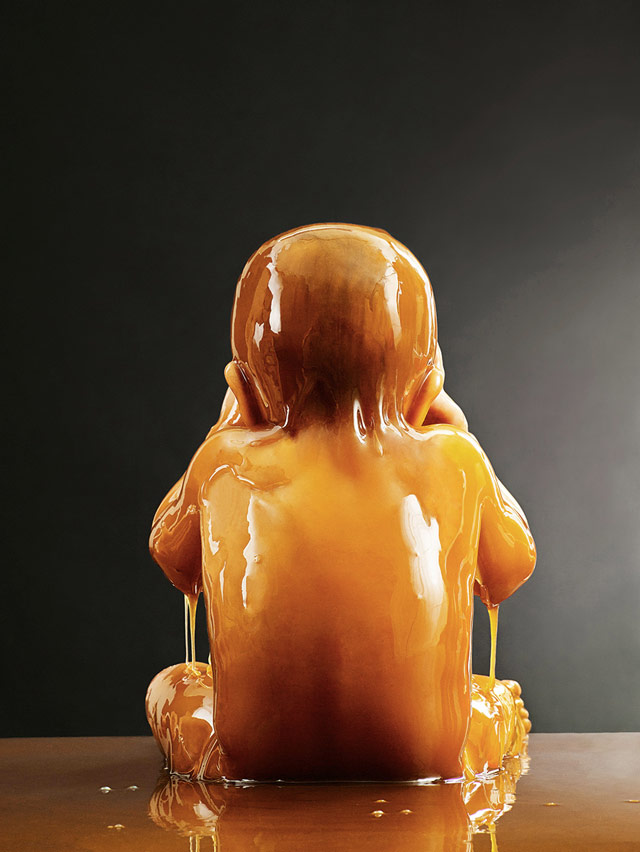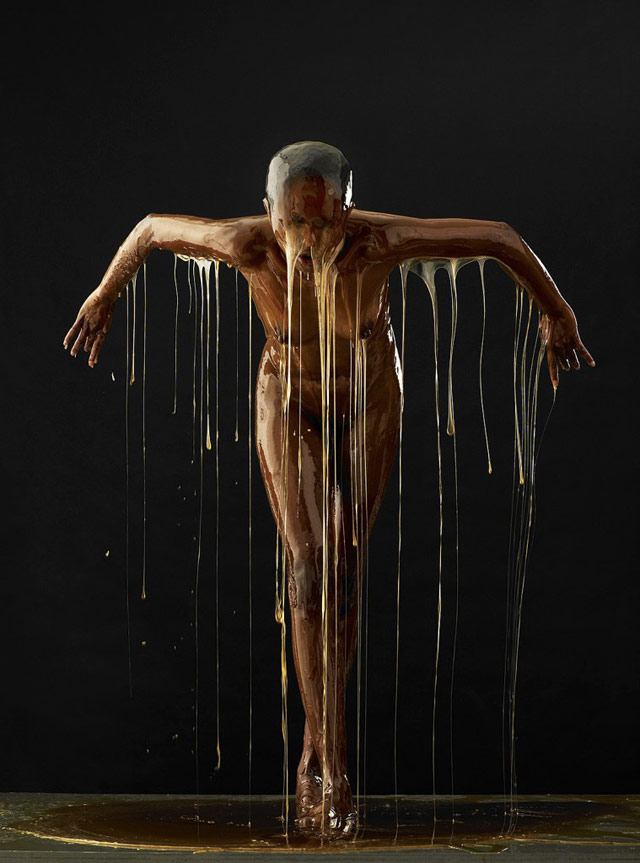Honey portraits
For his book Preservation, Blake Little drenched his subjects in honey and took their photos, mid-drizzle. A bit NSFW.


(via slate)



This site is made possible by member support. 💞
Big thanks to Arcustech for hosting the site and offering amazing tech support.
When you buy through links on kottke.org, I may earn an affiliate commission. Thanks for supporting the site!
kottke.org. home of fine hypertext products since 1998.
For his book Preservation, Blake Little drenched his subjects in honey and took their photos, mid-drizzle. A bit NSFW.


(via slate)
Recent tests conducted by Food Safety News show that about 75% of the honey sold in US grocery stores isn’t officially honey.
The results show that the pollen frequently has been filtered out of products labeled “honey.” The removal of these microscopic particles from deep within a flower would make the nectar flunk the quality standards set by most of the world’s food safety agencies.
The food safety divisions of the World Health Organization, the European Commission and dozens of others also have ruled that without pollen there is no way to determine whether the honey came from legitimate and safe sources.
In the U.S., the Food and Drug Administration says that any product that’s been ultra-filtered and no longer contains pollen isn’t honey. However, the FDA isn’t checking honey sold here to see if it contains pollen.
It’s that last sentence that really pisses me off…the FDA and USDA are pathetic jokes.
Anyway, there is speculation that the pollen removal is masking the use of unregulated, uninspected, and illegally imported Chinese honey.
Eric Wenger, director of quality services for Golden Heritage Foods, the nation’s third largest packer, said his company takes every precaution not to buy laundered Chinese honey.
“We are well aware of the tricks being used by some brokers to sell honey that originated in China and laundering it in a second country by filtering out the pollen and other adulterants,” said Wenger, whose firm markets 55 million pounds of honey annually under its Busy Bee brand, store brands, club stores and food service.
“The brokers know that if there’s an absence of all pollen in the raw honey we won’t buy it, we won’t touch it, because without pollen we have no way to verify its origin.”
Stay Connected